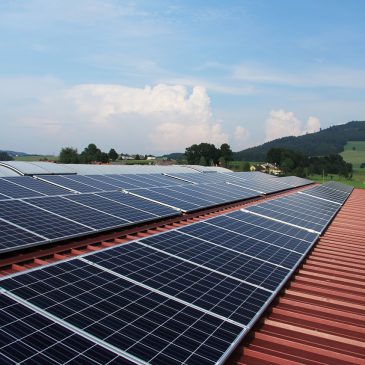Here’s What You Need to Know About Home Solar Systems
It can be a big decision to switch to solar energy, but the reasons for doing so are growing – and growing more important – every year. Solar is a clean renewable energy source that helps the environment and decreases health-harming pollutants. On top of that, you will likely be saving money every month on your electricity bills. What’s not love?!
With that in mind, here are some of the most common questions to help you make the final decision when you’re considering making the switch to solar power in your home.
How Much Will My Residential Solar Panel System Cost?
While it depends on the state where you live and the size of the system installed, there are many online solar cost calculators that will provide an estimate based on your area. However, the total cost will be cushioned by the 30 percent federal investment tax credit (ITC), which allows you to deduct 30 percent of the cost of your solar energy system from your taxes.
Some states, certain municipalities, and utilities also offer cash rebates or other tax incentives. Because of this, it’s always a good idea to compare prices quoted to other homeowners in your area.
How Long Will a Solar Panel System Take to Install?
While the decision-making process may take a while, once you have met with the installation crew and done any needed site visits, the actual installation of your residential solar panel system will only take a day or two of work. The exact time of your installation may vary depending on other factors. For instance, if you are connecting your system to the grid, then that will add on some additional installation time.
Do Solar Panels Work When It’s Cloudy?
Yes! While solar panels may not work quite as well (as discussed in this article on solar power efficiency in bad weather), solar panels still can produce between 10% and 25% of their typical output on a cloudy day.
The exact output percentage will vary depending on the cloud density, and also by the type of solar panels that you have. Some kinds of panels are better at receiving ambient light and others may similarly respond to a broader range of wavelengths.
How Much Money Will I Save With Solar Power?
How much money you can save on your electricity bills when you switch to solar power will ultimately depend on the utility rates and solar policies in your area. Just remember that installing a residential solar system will also protect you from rising electricity rates in the future, and it generally raises the overall value of your home, as well.
Again, there are several online calculators that will help you determine how much money you will say on the monthly or yearly basis by switching to solar power.
If the Grid Goes Down Will I Still Have Power?
If you use net metering and your system is connected to the grid, then no. You would have to build a completely off-grid project in order to not be affected, but these systems are far more expensive and complex. A grid-tied system allows any excess power generated from your solar panels to go back into the grid.
Basically, you’re treating the electrical grid as if it was a big battery, charging it when you have excess energy and taking power when you need it.

